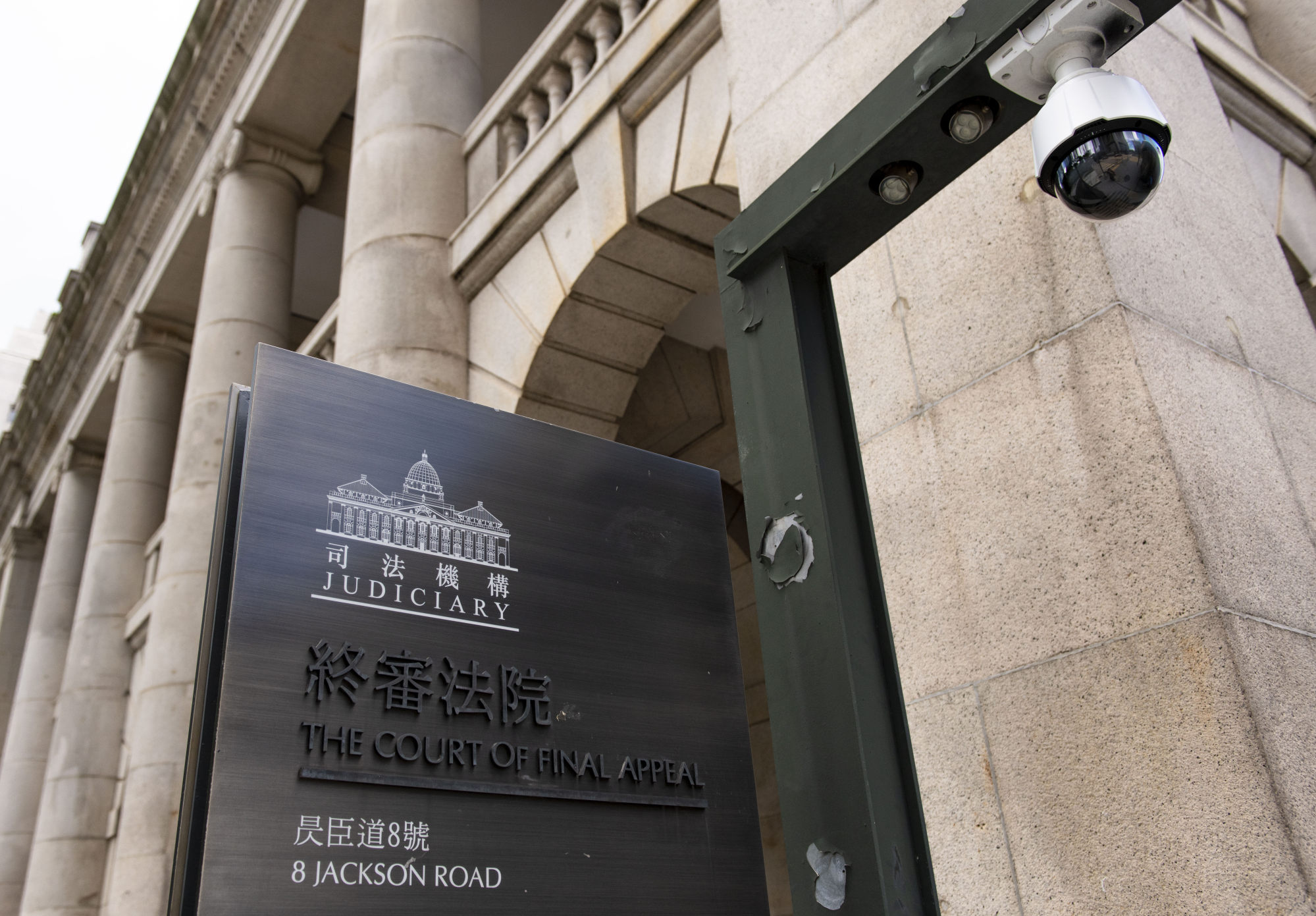
Hong Kong protests: top court acquits first person jailed for carrying zip ties, rules items ‘not instruments fit for unlawful purposes’
- Court of Final Appeal also warns that an opposite interpretation would allow authorities to penalise ‘thought crimes’
- Property agent Chan Chun-kit, 35, was jailed 5½ months for carrying 48 zip ties near protest in Causeway Bay on November 2, 2019
Hong Kong’s top court has acquitted the first person jailed for carrying zip ties after ruling that the law did not warrant convicting someone simply for possessing an item with a criminal intent, as doing so amounted to penalising “thought crimes”.
Laying down the landmark ruling, five Court of Final Appeal judges on Friday unanimously acquitted property agent Chan Chun-kit, 35, who was jailed for carrying the plastic fasteners during an anti-government protest in 2019.
The ruling drew to a close a court debate on whether an 1845 provision initially enacted to prevent specific crimes could be a catch-all clause enabling those found to be carrying items with ill intent to be charged.
Hong Kong protests: zip tie law can be interpreted ‘very broadly’, court told
Chan was the first person to stand trial and later be convicted and jailed over the possession of zip ties, receiving 5½ months behind bars for carrying 48 such fasteners – each measuring more than 15cm – when he was stopped by police near the scene of clashes at Victoria Park in Causeway Bay on November 2, 2019.
Chan did not explain why he kept the zip ties, but the trial magistrate concluded he must have intended to use them to build makeshift roadblocks and in conflicts with people who disagreed with his cause.
Steven Kwan Man-wai, who appeared for Chan at the Court of Appeal in 2021 in an unsuccessful bid to quash the conviction, told the three-judge panel that the prosecution had failed to demonstrate an unlawful purpose on the part his client, who insisted he had planned to use the ties for moving offices.
But the appeal court upheld the conviction and sentence last October after ruling that a sweeping interpretation of the charge under Section 17 of the Summary Offences Ordinance could effectively target criminals using different or even innovative instruments to commit an offence.
Section 17 seeks to penalise “any person who has in his possession any wrist restraint or other instrument or article manufactured for the purpose of physically restraining a person, any handcuffs or thumbcuffs, any offensive weapon, or any crowbar, picklock, skeleton-key or other instrument fit for unlawful purposes, with intent to use the same for any unlawful purposes”.

In a written judgment, Chief Justice Andrew Cheung Kui-nung said the lower appellate court had erroneously given the last part of the provision, “other instrument fit for unlawful purposes”, a blanket interpretation, adding such an unrestricted construction would “do violence to the language” of the law.
Instead, the top judge held that the wording confined its use only to three expressed illegal purposes: physical restraint, injury to a person and gaining unlawful access.
The lower court’s approach, he said, was contrary to the legislative intent of restraining the scope of the provision.
Hong Kong’s top court to decide whether zip ties are ‘fit for unlawful purpose’
“The Section was not a convenient method of seeking to obtain a conviction against a suspect when there was insufficient evidence to charge him with an attempt to commit a crime,” Cheung said.
The wider construction placed on the provision by the Court of Appeal in this case would go far beyond using the offence in that way, as it would mean almost all articles or instruments could be considered fit for some unlawful purpose, he said.
“In other words, under this construction, Section 17 is in reality a thought crime, depending on what a defendant’s intent was at the material time subject to proof. There is simply no warrant to suggest that this was the legislative intent.”
While several protesters have been jailed over carrying zip ties along with other offences, Chan was the sole defendant convicted and jailed solely because of the crime.
